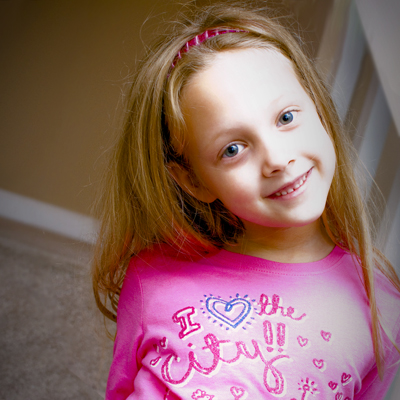Just a few months in to her public school education, we encountered our first parental objection to part of Kaelyn's curriculum. Kindergartners at Fairview-Clifton German Language School take part in a book reading program. Every day, Kaelyn brings home a library book that we are supposed to read together. Mostly, this has been an enjoyable endeavor; sure, there have been a few lackluster selections, but there's only so much you can do with a kids book. I'm starting to think that writing stories for children could be a great income source.
Last night, Kelly told me that she had previewed the book of the day and didn't want Kaelyn to read it. Curious of what kind of pagan ideology found in a kid's book could push my wife to advocating censorship, I took a look at it myself.
The selection was The Little House by Virginia Lee Burton. It was published in 1942 (though I'm assuming it was actually written in 1941, before the start of the Second War World), but I can remember it reading it when I was a child. For those of you unfamiliar with it, the Disney Corporation made it into a cartoon in 1952 [accessible by clicking here]. Although the cartoon isn't totally faithful to the text, the concept remains the same: it's the tale of a small house on a hill in a rural area where life is great. The house secretly wishes it could partake of city life, but little does the little house know, the city would soon come to her. As roads come her way, an imposing society builds up around her, leaving her cold and lonely. All seems lost until the house is relocated back to the country. The concluding page of the book reveals the house's lessons learned:
Never again would she be curious about the city . . .
Never again would she want to live there . . .
The stars twinkled above her . . .
A new moon was coming up . . .
It was spring . . .
and all was quiet and peaceful in the country.
And this is why my wife did not want my daughter to read this book.
Now I've got to give it up to Kelly. I absolutely love that she's so passionate about our family's urban lifestyle that her visceral reaction was to protect our daughter from views that could disappoint her. But Kelly's not really the censoring type, and I figured if Kaelyn's urban school offered it, it couldn't be that bad. One of the things about city living is that you can't really cover-up the real world, so I went ahead and read the book with her this morning. After we finished, I eagerly awaited her response.
She asked for breakfast.
It might seem like much ado about nothing, but we get paranoid about raising our kid in the city. Kelly's upbringing was suburban, and mine was practical rural, with some 'burbs and city on the side. Since we both cherished our childhood experiences, we want to make sure she's not shortchanged. And for the past sixty years, the American dream has been contextualized as a suburban abode. Burton wasn't starting a movement with her kid's book, but was reflecting a reality that took off after World War II. So it really feels like we're swimming upstream here.
But the beautiful thing is that Kaelyn knows nothing different. She's been a city girl her whole life— always surrounded by people and noise, her only yard a public park. But the benefits have been innumerable. She absolutely loves the city; she tells us all the time.
So our little townhouse might be crammed in the little of the city, but I don't think she's sad. And unlike that weepy home, our family's urban curiosity is far from being satisfied.
By the way: here's the shirt that Kaelyn wore to school this morning:

I think that settles it.
p.s. A kid's book that I loved about the city was one that Kelly found. It's called Rose's Garden, and was inspired by the life of Rose Kennedy. A little video introduction to the book can be found here.